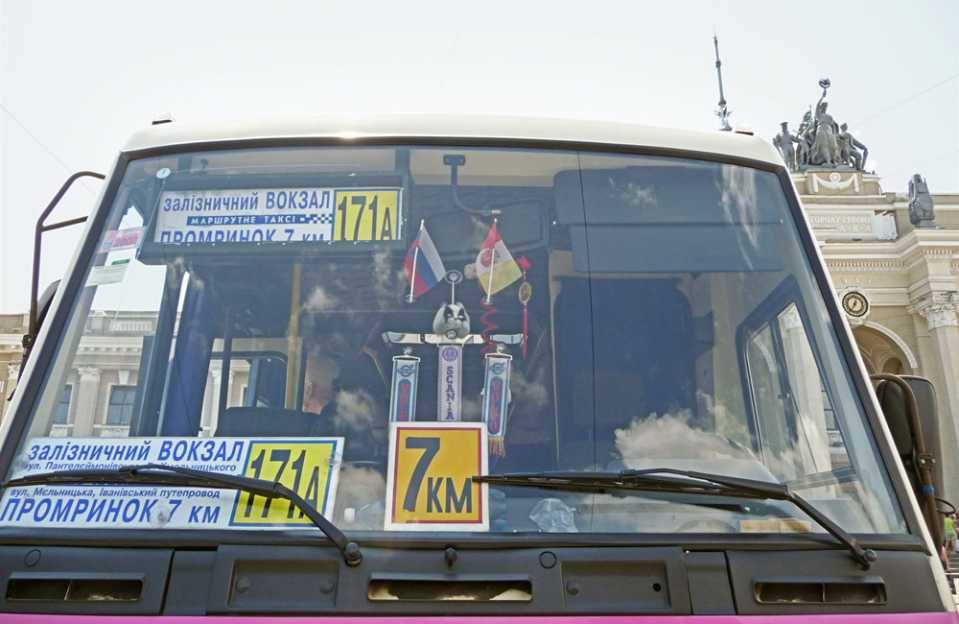
Former African students work as traders on the 7th Km Market.
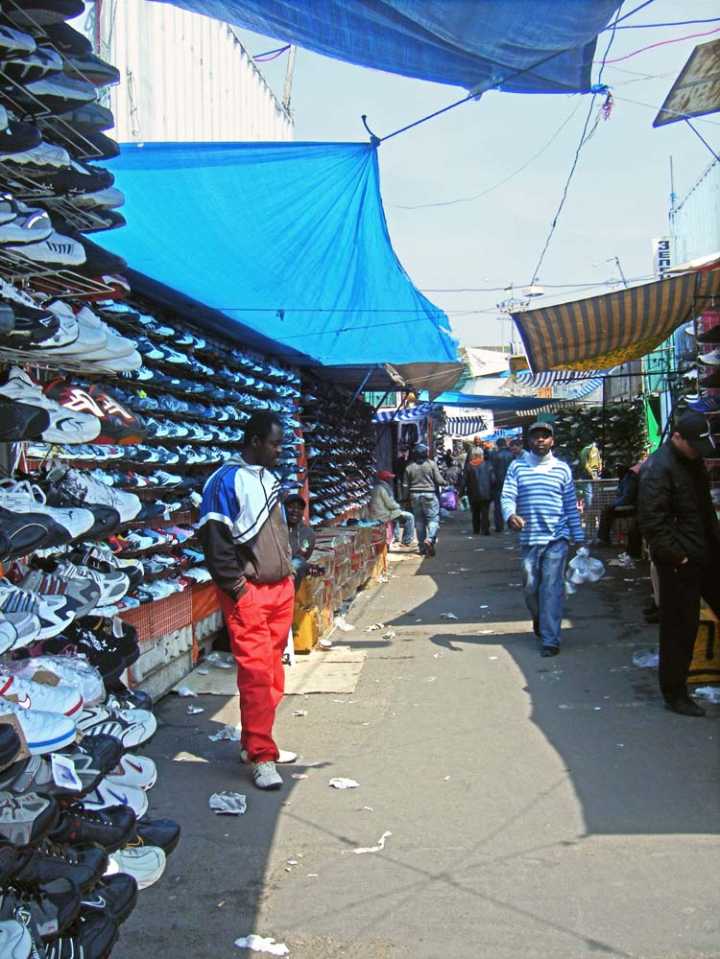
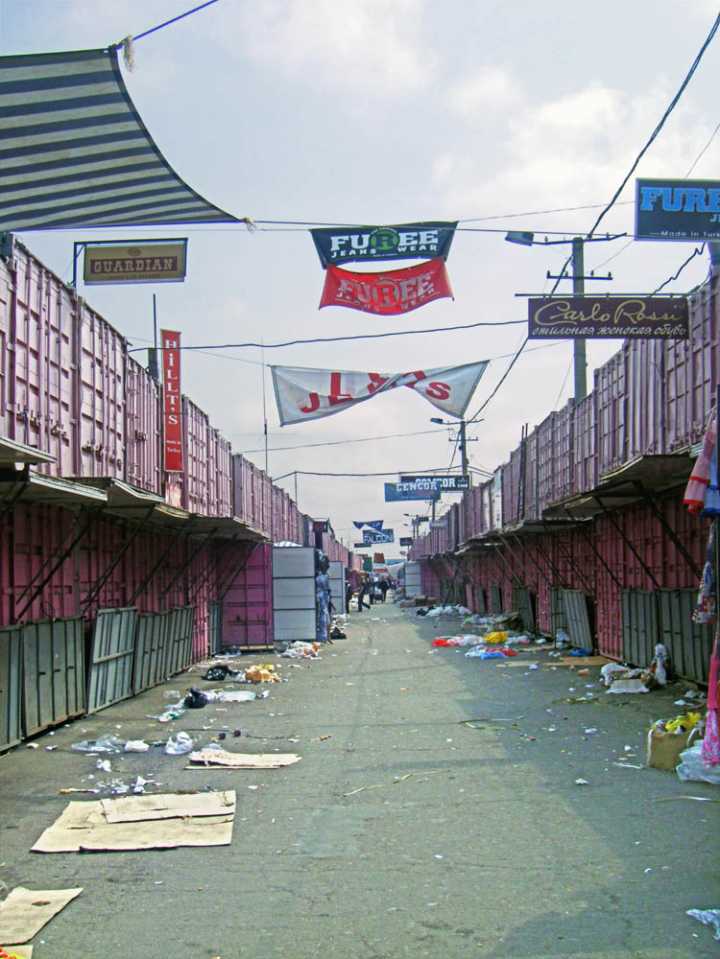
Right: The 7th km: Pink street after closing time.
The 7th km: night-time wholesale trade.
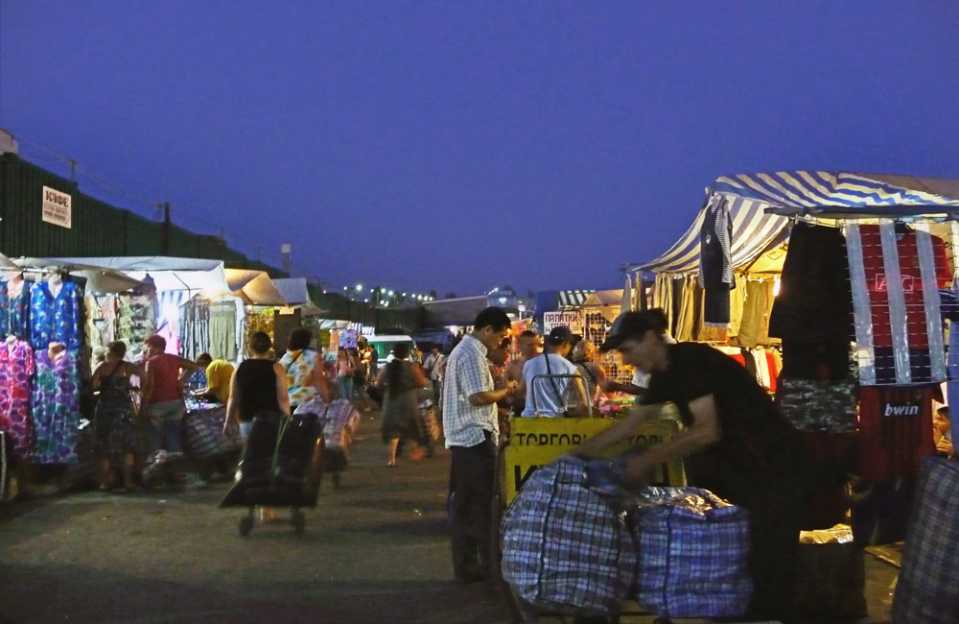
A Turkish trader selling Turkish leather goods.
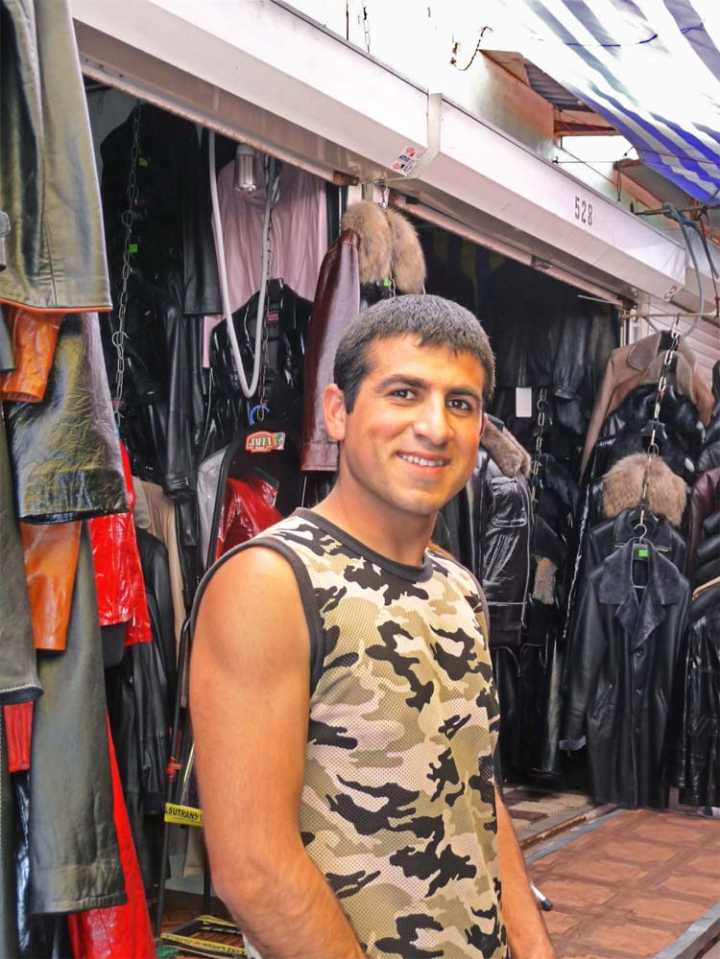
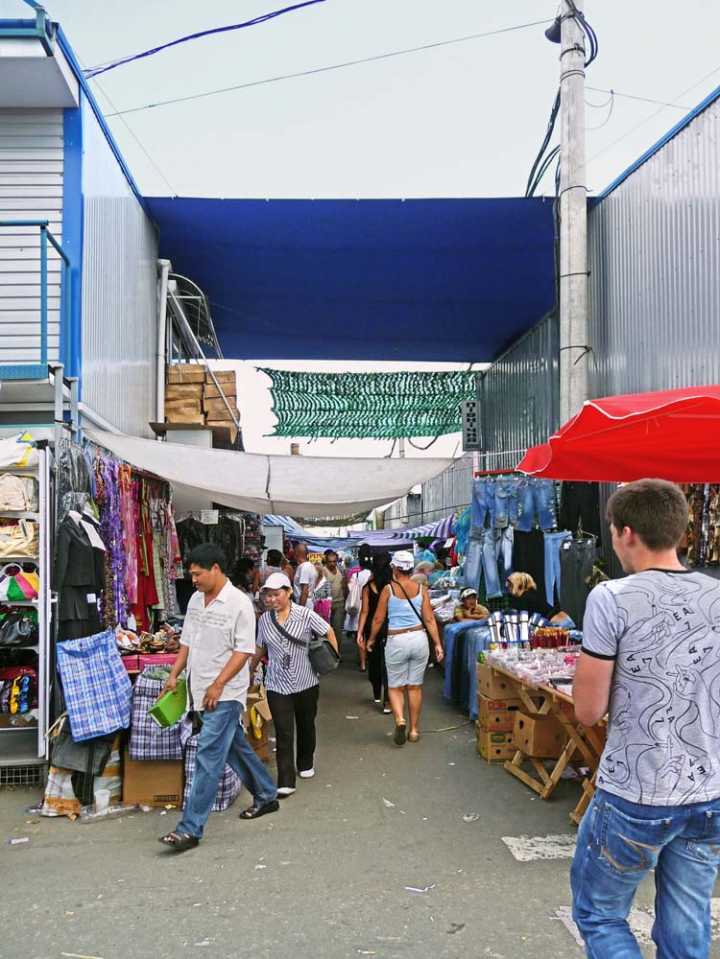
Right: A Vietnamese money changers' corner.
Sociality on the market: a shared meal after work.
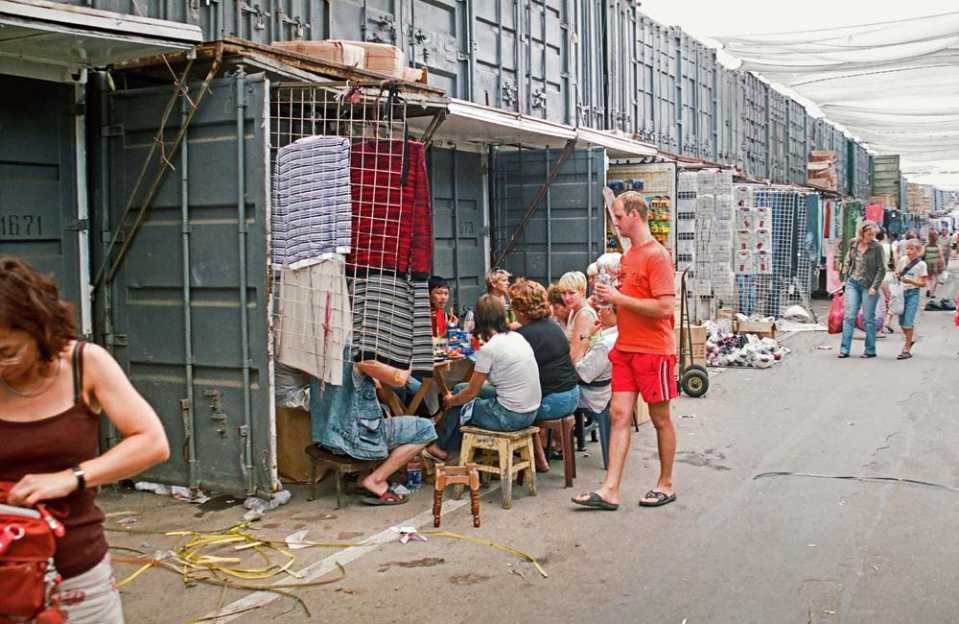
So Sedmoi really is like a world on the other side of the mirror. To its denizens it is a place of security, mini-power, and opportunities not found in the city. Here reviled alien outcasts can feel at home; the unemployed can find work; here the fresh-faced Ukrainian seller has someone else (‘the master’) playing cards and drinking brandy in the back of the container; here a precious space has been created where an entrepreneurial person can make money independently of the state. Alternatively, from the perspective of upright state employees of Odessa, this market is nothing but the dump where the detritus of world petty capitalism gets blown. Perhaps it is not surprising then that Sedmoi is an occulted, phantasmic place in some ways. Unlike the kind of sites of supernatural danger analysed by Mary Douglas (i.e. located in the zones of indistinction where different classifications overlap), the heightened occult awareness of the people at Sedmoi is created by its separateness, its irreducibility to either the space or the time of the city.
Sedmoi is a separate place. But it is one that the city is trying to take over. In autumn 2007 a power struggle was (and still is) raging. The city is battling in the courts to claim part of the market in ownership and to retrieve 500 million griven (100 million dollars) as compensation for unpaid dues. The traders know their profits are at stake. On the 29th September 2007 they held a mass protest meeting. They agreed to picket the Odessa Town Soviet and to send a petition with 11,000 signatures to the municipal authorities. More recently, they agreed to prepare a referendum for a vote of no confidence in the Mayor, Eduard Gurevits, whom they held personally responsible for the court case (3).
It is already the case that Sedmoi has become such a super-desirable alternative and subversive power that it can be seen as the mercantile heterotopia not just for Odessa city but for the whole of Ukraine. During fieldwork in 2007 we asked a Russian trader at Sedmoi, ‘Who is the master (khozyain) of the market’? Without hesitation she replied, ‘The President of course.’ Taken aback, we could not at first understand that she meant the president of Ukraine. Apparently, according to her, several proposals had been made to move the 7th Kilometre to Kiev, the capital of the country. The move had been blocked by opposition from the Odessan authorities, who argued that thousands of jobs would be lost and the whole south of the country thrown into economic ruin. Next, Timoshenko, when she briefly took power, threatened to close the market down (for violation of tax regulations). Finally, President Yushchenko paid a visit to the market. Some arrangement was made. Now, the trader assured us, the president made regular visits every two months and pocketed USD $20 million each time. The reality of such a deal was of course shrouded in mystery, though the media provide hints.
read more...
read more...
read more...
read more...
read more...
read more...
read more...
read more...
read more...
read more...
read more...
read more...
read more...
read more...